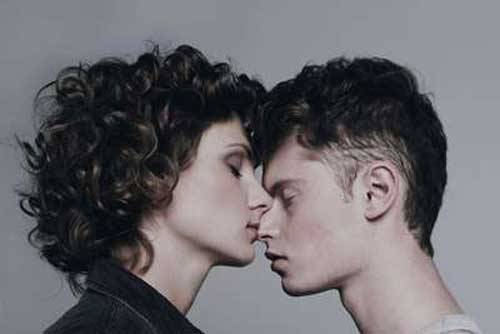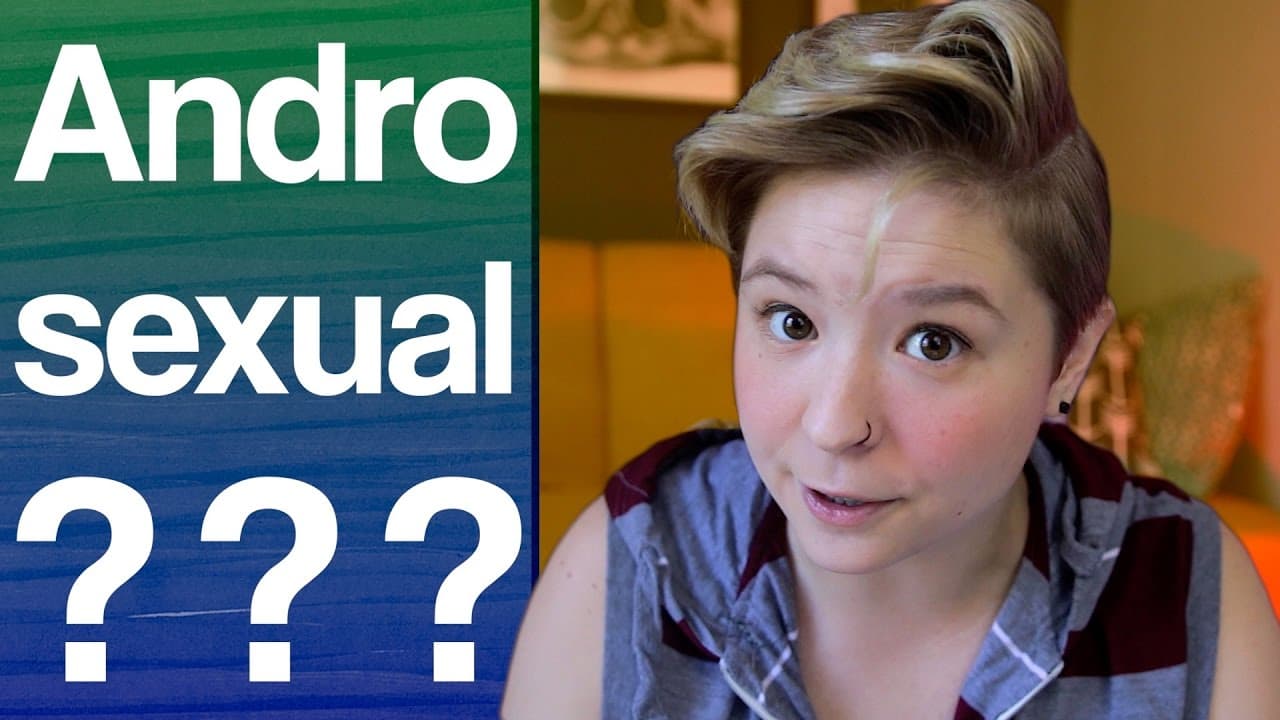
There are a lot of gender definitions these days, and it can be difficult to understand what each means, particularly if they don't apply to you. We're going to take a look at the term androsexual in this article, and find out more about what this term means. So, what is an androsexual? An androsexual may not be exactly what you think. Androsexuals aren't homosexual and they're not heterosexual. The term is used to describe attraction to males, although it's usually used to describe men being attracted to people who are male gendered as well. This term doesn't really apply to heterosexual women, by default. Once you understand the term a little bit better, it may help you to feel differently about dating someone who identifies as androsexual, because the term isn't limited to sexuality.
At the end of the day, people really care about their gender identity, so it's something that everyone needs to put some thought into, collectively. Keep reading right here, to find out more.
The very definition of androsexual, is 'Anyone who has sexual feelings towards males', so right away one might tend to jump to the conclusion that this represents either heterosexual women or homosexual men, or even bi-sexual individuals. It's a little bit more complicated than that though, as we're going to get into in more detail below.It can seem really complicated at times to delve into gender related topics such as this one, because there can be so much confusion behind what certain terms mean and how they apply. What usually tends to be the case though is that once we take a deeper look at the meaning of certain gender identities, we find that they don't mean exactly what we may have thought they meant, and there is a lot more beneath the surface of the definition that applies, and that's what makes each definition unique.

It can be easy for some who have a hard time understanding, to dismiss such seemingly complicated explanations, but once you dig deeper and get to know the different gender identities in more detail, it makes it a lot easier to see who people really are when you get to know them.

Being androsexual and being homosexual is not the same thing. Being homosexual is being a man who is attracted to other men, particularly physically. If you are androsexual, then you could be any gender, even if you were a female who had a sex change, or vice versa, and you would still be attracted to men and all of their masculine characteristics. It's not a term that is as simple as homo or heterosexual. People who are homosexual wouldn't necessarily identify themselves as being androsexual, because they are males who are attracted to makes, and therefore homosexual.
If someone is androsexual, they may be a man who transitions to being a female, and their attraction toward the masculine doesn't change. Hence, they are not gay. There where not necessarily a male who was attracted to males, because upon transitioning to female, their attraction toward the male characteristics didn't change. So, it is very important to understand that being androsexual and being homosexual are not the same thing, and identifying an androsexual as a homosexual would be incorrect. There's a lot more to it than that, and much is on a psychological level, not just a physical level.
Just as those who are androsexual are not homosexual, they are not heterosexual, either. If someone is androsexual, and they are female, that still doesn't make them heterosexual, because again, if they were to transition to being a male, they would still be attracted to men. Regardless of the gender that the androsexual may (or may not) choose to identify with, their attraction towards males will remain, and that will continue to be their preference, and what they are attracted to. So, while it may be tempting to believe it's acceptable to refer to a heterosexual woman as androsexual, that would be inaccurate. The heterosexual woman identifies herself as a woman, and a woman who is attracted to men. She fully identifies as female, and is attracted to men, there is no level of gender fluidity there.
When it comes to properly defining the term androsexual, the largest difference that is easily the most significant, is that androsexuals are completely attracted to men, however they may not necessarily see themselves as being specifically male or female, they are more likely to consider themselves to be gender fluid. This being the case, as mentioned in both of the previous points made, those who are androsexual will not need to be referred to as heterosexual if they are female and attracted to males, nor will they need to be referred to as homosexual if they are male and attracted to males. They could elect to go through a gender transition either way, and however they identified their gender afterwards, they would still be attracted to men (this is an example). So, it's important to understand that while the term androsexual is certainly used to describe attraction to males and masculine characteristics, it's also used by people who don't necessarily identify themselves as being male or female in a definitive manner. An androsexual is more likely to identify as being gender neutral or gender fluid. This is probably the biggest difference between being androsexual and straight up heterosexual (if you're a woman), or homosexual (if you're a man). Also, it's not the same as being bisexual, because if you're bisexual, you identify as male if you're male, or female if you're female. Yes, you're attracted to males, but you're also attracted to females, and if you're androsexual, then you are attracted to males only. It's not the same thing, and again it's important to remember to recognize gender fluidity when it comes to understanding the uniqueness of those who are androsexual.
Because it's usually used by genderqueer individuals, the term androsexual is generally used to describe men who are attracted to others who are male gendered. We've talked about how this doesn't necessarily mean that these men are homosexual though, because even though they may be men who are attracted to men, if they were to transition to being female, then then would still be attracted to men. The idea here to remember again, is the idea of gender fluidity, and how it is the most specific characteristic that sets those who are androsexual apart from their homosexual and heterosexual counterparts. Changing gender, or identifying as one gender or the other will not affect the sexual preference of the andeosexual individual, so it's important to remember not to categorize androsexual individuals as homosexual or heterosexual, based on what you perceive their gender to be. You will be improperly identifying them.
Because this term is more often used by those who are genderqueer, it's not necessarily something that heterosexual women fall under by default, just because they are attracted to men. It might sound complicated, but because when it comes to gender identity people are generally very specific about how they like to be identified or addressed, this term should probably remain reserved for the genderqueer folks who are attracted to men. Again, as mentioned before, it is not accurate to refer to heterosexual women as being androsexual, because they are not. They are women who identify as women, and they are attracted to men. They are very much heterosexual, and in terms of gender identity, there is no grey area for heterosexual women, as they do identify as being women. This, again, is the most important difference between the two. It's gender fluidity that separates androsexuals from heterosexual women. If the androsexual woman because a man, they would still be attracted to men and their characteristics.
If you're dating someone who is an androsexual, you probably need to consider whether or not this is something that you feel comfortable with. Chances are, you're just fine with it. There's also the chance that it makes you uncomfortable because your personal feelings and understanding about sexuality aren't necessarily as broad. Either way, that's something that you're going to need to decide for yourself and it's probably a really good idea to make sure that you have some pretty full conversations before deciding that it's something you can't handle. Try and be open-minded if you're not already. A lot of these terms and behaviors have been around for a long time, it's just that they haven't been talked about until now, so you could still be with someone who has these feelings and would never talk about it, but at least in this case, you're in the loop. At the end of the day, it's really not a big deal, it simply depends on what you're ready to understand and accept.
the most important thing to know about the term androsexual, is that it's not just a sexual term, and the name would imply. It really represents very strong feelings towards male characteristics. Basically everything that represents masculinity. It's the physical, sexual, emotional, and mental essence of men that androsexual people are attracted to, and it's not necessarily one characteristic more than the other. Limiting the term to sexuality can demean it in a sense, and you really don't want to put people in a box that they're not comfortable in. It's important to recognize that the term is also very strongly related to emotional and mental traits that people are attracted to. Understanding that is a big part of understanding the term in general, and allow you to be more sensitive towards the gender identity of those who are androsexual, which leads us to our next point.
When people identify themselves a certain way, it's very important to them. Think about how you might feel if someone was carelessly misunderstanding and/or misstating your gender identity, or any other identity or character trait that is important to you. Gender identity is a very big part of who we all are, and even if we identify as heterosexual or homosexual, under the simplest of terms, we still want to be properly recognized for who we are, and what we identify as. There's now a lot more to consider when it comes to gender identity and for those who are finally being recognized, it's a really big deal to them, and even though it can be difficult to learn and understand so many different terms, it's important that we all keep learning as we go, so that when people tell us who they are, we can have a better understanding of them.
Knowing a little big more of this will hopefully help you to have an overall better understanding about someone that you may not have fully understood before, and allow you to approach them with a better sense of understanding as well. Everyone wants to fee like they are understood and recognized for who they are, so it's a great thing to get to know as much as possible about people and how they each choose to identify their gender. Nothing has ever been as simple as it has seemed, and now that we as a society are more open to talking about and understanding different gender identities, we can have a much better overall sense of who we all really are.
Did we teach you a thing or two? If you still haven't learned your lesson, then why not take a peek at our other fabulous relationship advice guides NOW RIGHT HERE!
Need help trying to get your partner to sext more? Find out how by reading our article HERE!!